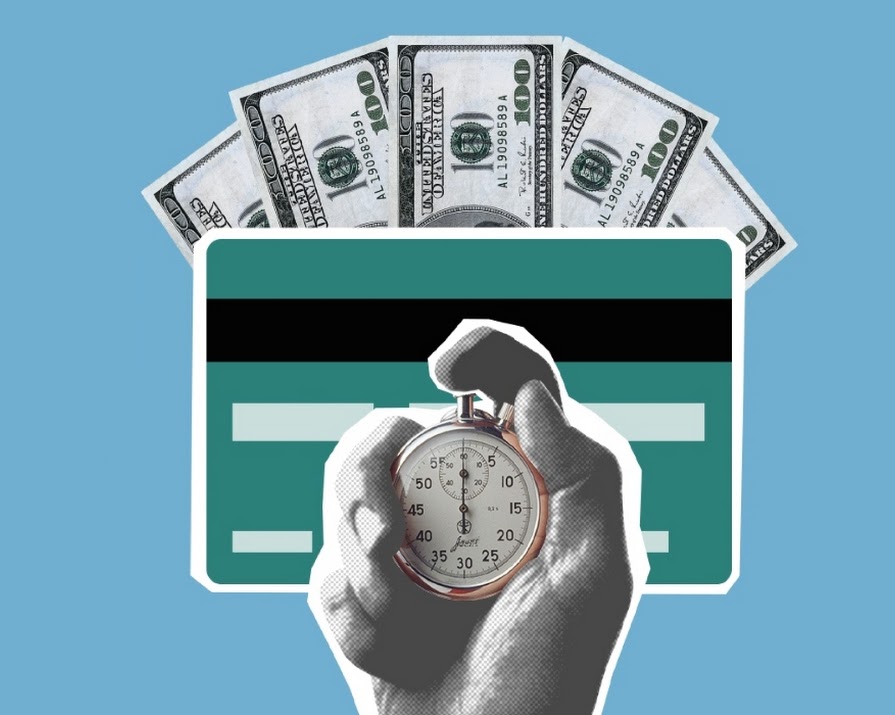
By IMAGE
09th Feb 2024
09th Feb 2024
Women are notoriously bad when it comes to talking about money, but if we all got just a little bit braver, the results could be very surprising, writes Lorraine Donegan.
They say that money makes the world go around, but that doesn’t make it any easier to talk about. I’ve worked in finance for more than 20 years, but I still see people squirm when they talk to me about what they earn, how they spend and what they save.
Given how much money feeds our lifestyle and sense of worth, that’s understandable, but it’s also ultimately destructive. The simple fact is that if you can’t talk about money with key people like your employer, your clients, or your life partner, then I guarantee you, you are losing out.
At work
Take work as an example. When it comes to your next salary review, how will you prepare? Will you sit quietly by and accept whatever your employer says? Or will you go armed with evidence, bullet points and clear examples that show your value to the business should be recognised with a pay rise?
Speak up and articulate the value you deliver to the business. If you’re in sales, for example, go to that review meeting armed with details about the number of deals you’ve closed, the profits you’ve secured, the value of your pipeline, etc. If you’re in services, list your successes and the benefit that success has had on customers and the company bottom line.
Whatever your job, take time to really think about how your work affects the company. Arm yourself with real examples of how you have delivered value, saved company money, earned the company profit. Then, have the courage to articulate that information to your employer. You’ll not only increase your own self-worth, but you’ll gain more recognition and hopefully earn yourself a pay rise.
What if you work for yourself?
If you work for yourself, then complete the same exercise and answer the question, “are you charging enough for the value you create?”
I’m passionate about this advice because in 2018, I took the decision to change how I value my work and it has been life-changing. For many years, I didn’t charge a time-based fee for my advice. Clients would ring to get updates on their pension, savings or tax-saving ideas that would take hours to complete, and I never charged a cent. Finally, I realised that I needed to value my time and advice more and took the brave step to inform clients that I would subsequently be charging for my time.
How did they react? Naturally, they were a little taken aback at first, but now that they know they are paying for my time, they are much more focused, organised and committed to achieving results. Because I value my time, so do they, and the result is that I’m conducting more business than ever before.
Behavioural finance, which studies why people act the way they do around money, backs this up. Stating that there is a sweet spot where the service or product we offer is seen as “expensive but worth it” – this is the best possible place to inhabit as a business owner. So do yourself a favour and make every effort to find it.
At home
But don’t leave all this newfound bravery at work. Take it home and apply it there too. Money is always listed as one of the top reasons why people divorce, and it’s easy to understand why. If you’re in a relationship where one partner earns more than the other, or you have different attitudes to debt, spending or saving, then it’s natural that disagreements will occur.
So how can you learn to have better financial conversations with your other half? Start by understanding what money means to each other. Ask specific questions and really listen to the answers. For example, what does money mean to you, to your partner? What positive financial memories have you both taken from your childhood? What negative memories? What do you want from your future earnings?
Next, take what you have learned from that discussion and apply it to a plan for your future financial lives. Designate the first Monday of every month as “Money Monday” and sit down together to go over your bills, saving and spending habits, making sure things are on track and your priorities are compatible.
If you feel you could do with a little outside help, then don’t hesitate to meet with a financial advisor because it’s their job to make sense of your finances and set you on the right track.
How to have that conversation…
Alex Holder, gender pay gap campaigner and author of Open Up, shares her tips for getting used to talking about money…
We need to get comfortable talking about money. If we never talk about money with our friends, our partners or our parents, then when we need to talk about it – in a pay review, when choosing a mortgage or even calling out a hen do that’s getting too expensive – we won’t have the vocabulary to advocate for ourselves.
Money is the leading cause of stress and anxiety – so if you’re nervous about broaching the subject of money with someone, the first thing to know is you’ll not be the only one feeling stressed and uncomfortable. I’ve found with friends, most people are relieved that someone has brought the conversation up. If I say ‘Can we do something cheaper?’ there is generally a sigh of relief from everybody. Also, our conversations are more fun now that we don’t skirt around anything to do with money – we gossip about ridiculous weddings we’ve been to and ask each other advice about awkward bosses in pay reviews.
With your partner, talk about it when there isn’t an urgent issue. If you only ever talk about money when there’s an overdue bill, it’s always going to be a stressful conversation. Check in regularly with each other – one conversation about money isn’t going to solve everything. For money conversations to feel easy, you need to make them regular.
With people at work, I think it’s about realising what you can gain from talking about money. Remember that secrecy generally only protects employers. The easiest first conversation to have is with any colleague who is leaving your place of work – the direct competition no longer exists, so the question, “can I ask what they were paying you?” is easier.
Childhood experiences or memories of money can have a big impact on your spending and approach to finances in adulthood. Because of the whole “don’t talk about money” taboo, what we learn in childhood remains unchallenged throughout our life, so how our parents were with money – whether good, bad or weird – sticks with us. A great way to unpick this is to chat to your parents about money now. If you’re lucky enough to have them around, ask them what they wish they’d done differently. And ask them about their pension – it’s often a pretty sobering chat!
This article was originally published in the April 2019 issue of IMAGE Magazine.






















